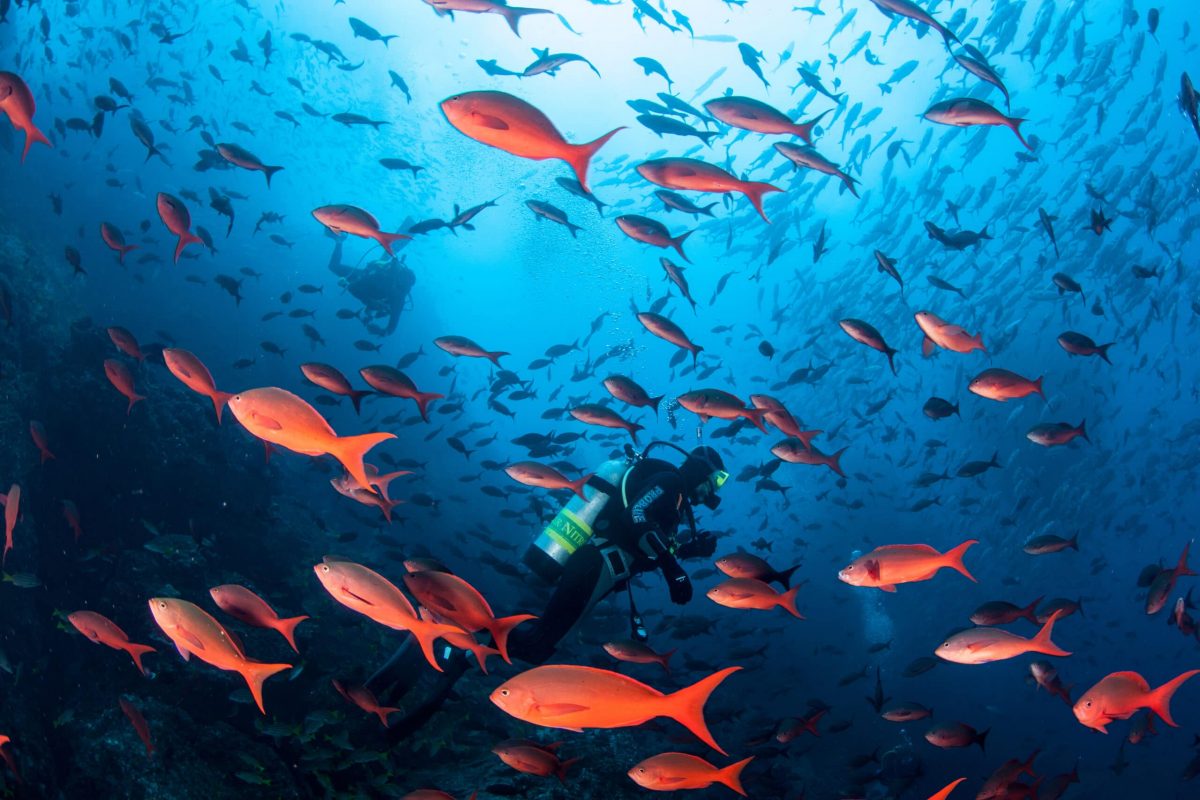“The Science We Need for the Ocean We Want “
– The International Oceanographic Commission of UNESCO
Thank you for joining us on our adventure to learn more about the Decade of Ocean Science for Sustainable Development! This series of articles is dedicated to exploring and learning about the ocean, as well as showing how the Decade will impact all of us moving forward. We aim to bring unique stories and insightful dialogues that will add new pieces into the giant puzzle we call our ocean. We look forward to you joining us on this journey. Together, we can achieve a healthy and productive ocean!
Why is the Ocean important to us?
Covering over 70 percent of the Earth’s surface, the ocean is the world’s largest ecosystem and provides countless benefits to us and the planet. In addition to our forests, the ocean provides more than 50 percent of the oxygen that we breathe. The ocean also provides other critical environmental services such as carbon sequestration, climate regulation, food resources for over a billion people worldwide, and natural resources worth over $282 billion in goods and services each year.
Unfortunately, much of the ocean has been seriously degraded at an alarming rate due to human activity. Our ocean has become warmer, more acidic and more polluted , which has negatively impacted marine ecosystems such as coral reefs. This has resulted in the loss of many of the benefits that the ocean has provided us for millennia and has also started to impact humans as more and more microplastics are found in the seafood that we eat.
What is the Decade of Ocean Science for Sustainable Development?
So, what exactly is ocean science? Ocean science combines a variety of different disciplines, such as marine biology, oceanography, geology, and other sciences, to study and provide critical data on the health and productivity of the ocean. Scientists and researchers are constantly looking to better understand and predict ocean patterns so that decision makers can plan conservation and management activities that improve ocean health and productivity.
Ocean science has provided us with the knowledge and data necessary to take action and reverse declines in ocean health; however, current efforts are not nearly enough. There is a pressing need to better coordinate and integrate the insight we gain from ocean science into decision-making processes to support effective action and respond to the needs of society.
To help accelerate progress in ocean science, the United Nations declared on 5 December 2017 that 2021-2030 will be the Decade of Ocean Science for Sustainable Development. The Decade will be led by the Intergovernmental Oceanographic Commission (IOC) of UNESCO and has two main goals:
- To provide ocean science, data and information to inform policy for a well-functioning ocean in support of all Sustainable Development Goals (SDGs) for the Agenda 2030
- To generate scientific knowledge, underpinning infrastructure and partnerships
This will be a ‘once in a lifetime’ opportunity for us to create strong foundations and policies, based on science, to strengthen the management of our ocean.
Why a Decade of Ocean Science?
In the Global Ocean Science Report, it was discovered that there are currently major disparities in the worldwide capacity to conduct marine scientific research, with most research concentrated in a relatively few places. The Decade aims to address these disparities by building an international framework that will foster partnerships between all communities and stakeholders that are working to study, conserve and sustainably use the ocean and its precious resources.
The 2030 Agenda for Sustainable Development
The 2030 Agenda for Sustainable Development was adopted by the United Nations in September 2015 and came into force on 1 January 2016. The 2030 Agenda established 17 Sustainable Development Goals (SDGs), which serve as a call for action by all countries to end poverty, protect the planet and improve the lives of everyone. You can learn more about the SDGs by following this link.
How can you get involved?
The Decade will require action from ocean stakeholders at every level. Eat Blue™ aims to promote ocean action and to educate people on important ocean issues. However, we are not alone in our work! There are many great resources available about the Decade for those who want to educate themselves and become more involved with the process. Below are a few steps that you can take to help us achieve a sustainable and healthy ocean:
- Read the report the Ocean Stewardship 2030 report produced by the UN Global Compact
- Follow and share this article within your network to spread awareness
- Spread advocacy and education regarding Ocean Health! Visit Eat BlueTM weekly for thought-leadership and educational content in ocean health and sustainability and follow us on social media at @EatBlueNow
- Stay tuned for future articles in this series on the Decade such as:
- What is the Planned Proposal for the Decade of Ocean Science?
- Joining the Community/Stakeholder Groups for the Decade of Ocean Science
- Highlighting the Partners in the Decade of Ocean Science
